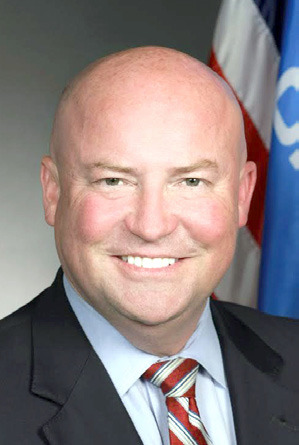FOR THE CHILDREN / From the desk of Joe Dorman
As a longtime advocate for children’s success, I have grown accustomed to conversations from multiple perspectives which shed light on aspects of policy.
I have also been the target of frustration from many individuals and organizations who are either adamantly opposed to any change in a policy, or those who are unwilling to consider points of view when it limits their own personal freedoms, even for the greater good. This has increased with the advent of social media. Through time, I have gotten used to it; it is just part of the job when one wants to find solutions to legitimate problems.
This was the case when I participated in a legislative interim study examining issues with children “falling through the cracks” of society when they are isolated. Far too many families choose to withdraw their children from public, private, charter, or virtual schools to hide abuse under the guise of home schooling them. While this association is not fair for the home school community to be linked to that, the trauma for these abused children is real.
In many circumstances, these children do not receive any type of education and far too often are the victims of abuse, neglect, prostitution, and sometimes even death. Once discovered, those who live will undergo years of therapy and medical services to help them overcome the trauma they have endured.
As reported by the Coalition for Responsible Home Education, a 2014 study of child abuse so severe it could be termed child torture found that 47% of victims had been removed from school to be “homeschooled”. In many of these instances, removal from school was typically initiated following the closure of a previously open child welfare investigation.
Statistically, the vast majority who choose home school are doing a fine job educating their children, oftentimes in ways that public schools cannot. With a specific focus on a few children, these individuals or cooperatives of parents can accelerate learning and provide unique opportunities for their children to learn.
But home schooling is not for everyone. Most families do not have the time or the resources for a parent to dedicate the time needed to do the job properly under the Compulsory Education Act, which dictates that all children must be educated at an appropriate grade level.
But what about those children who have no one to watch out for them, to ensure they are not being subjected to the worst that humanity could imagine? One case is that of Athena Brownfield, a child found dead when a child welfare case was opened regarding her sister who was found roaming streets unsupervised.
Unfortunately, it is typical for dozens of children to die each year under similar circumstances, and thousands more to fall into the abuse category.
When I offered that a dialogue be established to look at concerns and produce solutions, the reaction online was that “rights would be removed” for their own families and that “government is bad.” If not done correctly, I agree policies can be too intrusive, but that usually happens when the conversations I just mentioned do not happen.
As an advocacy organization, it is the job of the Oklahoma Institute for Child Advocacy (OICA) to shed light on policies impacting children, all children, not just those under the supervision of the state. We can protect proper home schooling, but also find ways to protect children who are being harmed under those laws.
I hope as the conversations continue with rational voices, that more will join civilly and agree to formulate solutions. If not, I am sure that I will read all about it on social media.



